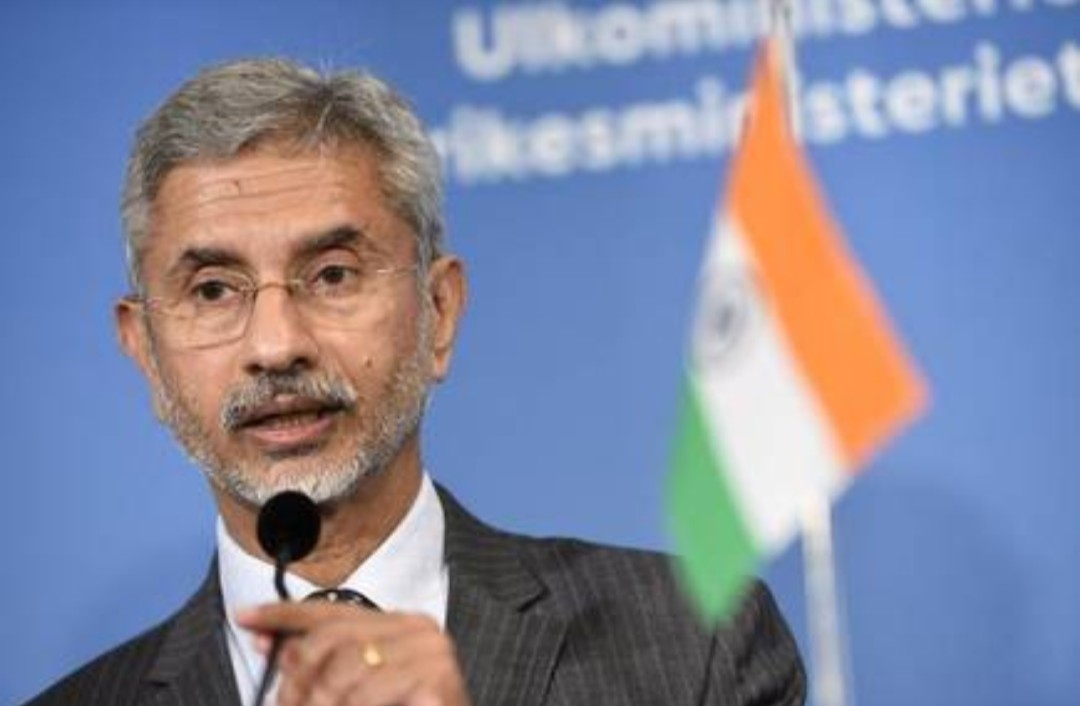External Affairs Minister S. Jaishankar held face-to-face meeting with his Chinese counterpart Wang Yi in Moscow.
After a two and a half hour long meeting that went into the night in Moscow, External Affairs Minister S. Jaishankar and Chinese Foreign Minister Wang Yi said they have agreed on a five point course of action to de-escalate the four month long standoff between troops at the Line of Actual Control.
External Affairs Minister S. Jaishankar with his Chinese counterpart Wang Yi during a meeting in Moscow. Credit: Indian Embassy
“The two Foreign Ministers agreed that the current situation in the border areas is not in the interest of either side. They agreed therefore that the border troops of both sides should continue their dialogue, quickly disengage, maintain proper distance and ease tensions,” a joint press statement issued after the meeting, the first face-to-face meeting between the two ministers since the LAC standoff began.
The five point plan includes abiding by the consensus between PM Modi and President Xi to “not allow difference to become disputes”, quick disengagement to ease tensions, abiding by existing India-China border protocols and avoiding escalatory action, continuing dialogue between the Special Representatives NSA Ajit Doval and Mr. Wang as well as the other mechanisms, and finally, to work towards new Confidence Building Measures (CBMs).
According to sources, Mr. Jaishankar conveyed “strong concern” over the Chinese PLA troops mobilisation along with equipment along various points of the LAC.
“The Chinese side has not provided a credible explanation for this deployment. The provocative behaviour of Chinese frontline troops at numerous incidents of friction along the LAC also showed disregard for bilateral agreements and protocols. The Indian side clearly conveyed that it expected full adherence to all agreements on management of border areas and would not countenance any attempt to change the status quo unilaterally,” the sources added.
While the agreement to de-escalate was made by the leaders, both sides said they have left it to the border commanders on the ground to work out the modalities of positioning for the troops, while they would give the process diplomatic support. Given that border commanders have been in contact on disengagement procedures since June and have made little headway thus far, it is unclear from the statement how the process would now change and hasten disengagement. Neither side has made a mention of restoring the “status quo ante” to positions held by troops in April, before the PLA mobilisation.
“The immediate task is to ensure a comprehensive disengagement of troops in all the friction areas. That is necessary to prevent any untoward incident in the future. The final disposition of the troop deployment to their permanent posts and the phasing of the process is to be worked out by the military commanders,” government sources said.
Sources on the Chinese side said that Mr. Wang had stuck to China’s “stern position” in the border areas, “emphasising the imperative is to immediately stop provocations such as firing and other dangerous actions.” However, the wording of statements from Chinese officials was more conciliatory and less accusatory than in the past week.
“Wang said China-India relations have once again come to a crossroads. But as long as the two sides keep moving the relationship in the right direction there will be no difficulty or challenge that can’t be overcome.”
The meeting between the Foreign Ministers in Moscow, which was facilitated and encourage by Russian Foreign Minister Sergey Lavrov, who hosted them at the SCO meeting, and then a Russia-India-China lunch which set the stage for the bilateral talks on Thursday. It is expected to be followed by talks of the Special Representatives and another meeting of the Working Mechanism on Consultation and Coordination on India China border affairs (WMCC). In November, Prime Minister Modi and Chinese President Xi Jinping are expected to attend the G-20 summit in Saudi Arabia, which will be the first time the two leaders, who have not spoken yet once during the standoff, could meet.
With inputs from The Hindu
(Except for the headline, this story has not been edited by Kashmir Today staff and is published from a syndicated feed.)

